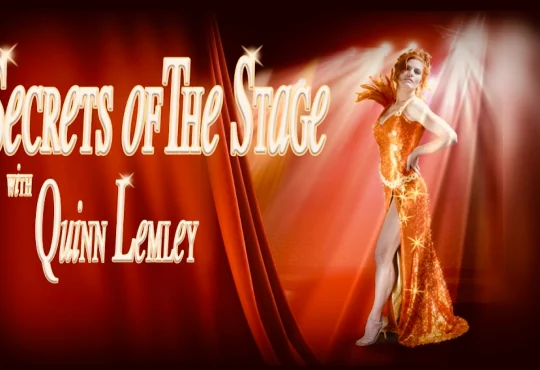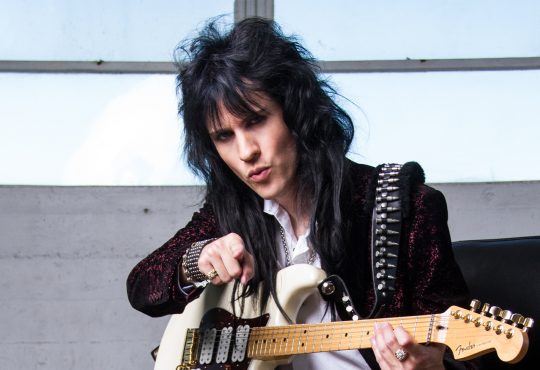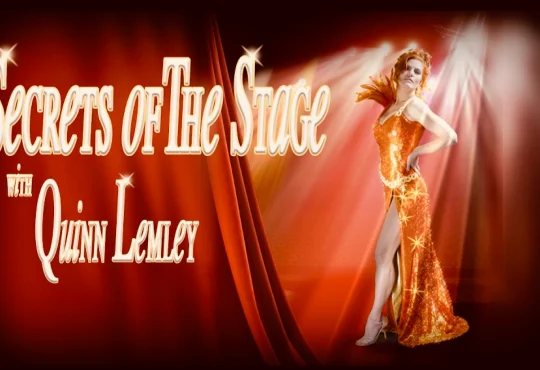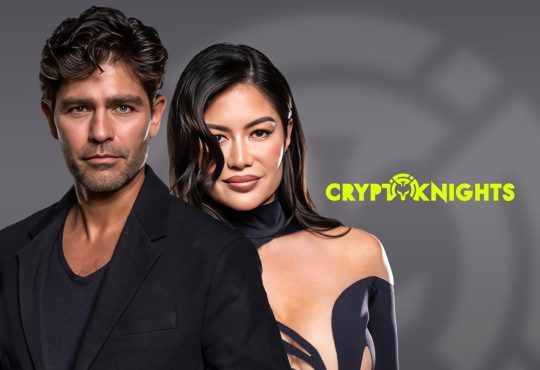‘The Falcon and the Winter Soldier’ Recap: Two (Butting) Heads Are Better Than One
A review of this week’s The Falcon and the Winter Soldier, “The Star-Spangled Man,” coming up just as soon as I’m fighting Gandalf…
In Captain America: The First Avenger, you may recall, Stanley Tucci has a small but memorable role as Dr. Abraham Erskine, the immigrant scientist who created the formula that turns Steve Rogers from scrawny dreamer into brawny supersoldier. He overhears tales of Steve trying and failing to enlist multiple times, gets a glimpse of this tiny kid’s huge heart, and pushes again and again for him to be the formula’s first test subject. When Tommy Lee Jones’ Colonel Phillips argues for a more competent soldier to be the pick, Erskine dismisses that soldier as a bully, and later asks Steve to promise him one thing: “That you will stay who you are. Not a perfect soldier, but a good man.”
We know from seeing all the MCU movies that Steve kept this promise. He was a good man, the best of all the Avengers, worthy enough to at one point lift Thor’s hammer. He was, in many ways, perfect — just as a man, rather than a soldier. But few people are perfect, even in a comic-book universe, and with Steve gone, “The Star-Spangled Man”(*) presents a variety of more human candidates who at different points were considered to replace him.
(*) The title is a nod to the musical number from First Avenger, and the marching band in the opening sequence plays a swinging arrangement of that song from Steve’s war bonds tour.
First, we have Sam Wilson himself, who was given the shield directly by Steve Rogers, only to deem himself unworthy. He spends much of the episode being scolded by Bucky for going against their mutual friend’s wishes and allowing it to fall into the hands of John Walker. In the comics of the Eighties, longtime Captain America writer Mark Gruenwald created Walker as a Reagan-era counterpoint to the FDR New Deal-style patriotism represented by Steve. Walker is from Georgia where Steve was from Brooklyn, conservative instead of liberal, cocky instead of humble, etc. He briefly assumes the Captain America costume and shield, makes a variety of big mistakes, returns both to Steve, and eventually winds up as a kind of dark Cap mirror called the U.S. Agent, an abrasive instigator type who often works with the Avengers but rarely gets along with any of them.
The MCU version of Walker, as played by Wyatt Russell (with a much shorter haircut than we’re used to from his other projects, like Everybody Wants Some!! and Lodge 49), is less obviously arrogant and difficult than his comics inspiration. We get our first extended glimpse of him sitting in the locker room of his old high school, admitting to his wife(*) Olivia that he’s worried he’ll fail to live up to the title and the example set by his predecessor. But there’s also something slick and rehearsed about him — Bucky, watching Walker’s Good Morning America interview, is rightly irked to hear the new guy say that Steve Rogers (whom he never met) feels like a brother to him — and also hints of something more ominous. His partner Lemar Hoskins (a.k.a. Battlestar) warns him, “You can’t just punch your way out of problems,” suggesting this was Walker’s M.O. prior to getting the shield and helmet. And after he tries repeatedly to recruit Sam and Bucky to team up with him — patronizingly referring to them as “Cap’s wingmen” — he finally gets fed up and changes his tone to one more menacing as he warns our two title characters to stay the hell out of his way.
(*) At least, I assume they’re married, since Gabrielle Byndloss is listed in the credits as Olivia Walker, and their vibe is more romantic than sibling-y.
There’s also the inescapable fact that John Walker is a blonde-haired white guy and Sam Wilson is a black man in a country with a long history of white supremacy. Malcolm Spellman and the show’s other writers (this episode is credited to Michael Kastelein) never have Sam explicitly say that this is why Walker was more acceptable to the government than him, but it’s been clear throughout these first two installments. Sam’s an Avenger and can’t even get a small business loan. When the Baltimore cops show up because Sam and Bucky are making a mild scene in the street, the officers are deferential to Bucky and assume Sam is the troublemaker; their tone shifts wildly after realizing who Sam is, and the irony is that Bucky is the one who exits in handcuffs, for violating his parole after missing a session with Dr. Raynor.
And, of course, the odd couple are only on that street in the first place because they’ve come to see Isaiah Bradley (played by the great character actor Carl Lumbly). He got a version of the supersoldier formula the first time Steve Rogers vanished, served his country in Korea, and then wound up serving 30 years in prison for his trouble, leaving him an understandably bitter, superstrong recluse. We don’t know the full details of what happened — nor whether Isaiah’s MCU story is meant to be identical to the one from the comic book Truth: Red, White & Black, which introduced him and the idea of black soldiers being used as guinea pigs in an attempt to recreate Erskine’s formula — but we have a black Cap stand-in who went to jail, and now a white one who gets to smile on his home field and do national TV interviews with Sara Haines. Totally fair and equitable, right?
“The Star-Spangled Man” is an even busier episode than the series premiere, but also a much more satisfying one. Actually putting the Falcon and the Winter Soldier into scenes together significantly boosts the energy level of the show and injects some badly-needed humor into what seemed fairly dour last week. Anthony Mackie has a tendency to be a bit stiff in this role whenever Sam’s not bantering with someone (whether Steve, Bucky, or occasionally Natasha), so pairing him with his best frenemy works wonders for that performance. It’s not even that Mackie and Sebastian Stan are a hilarious comedy duo, but the characters’ rivalry over being Steve’s true number-one partner makes every scene livelier than when either is apart from the other. The bit in the police station where Dr. Raynor forces them to do couples counseling exercises doesn’t make a lot of sense — Raynor’s concern is Bucky’s state of mind, and she’s literally just met Sam — but it was also one of the episode’s highlights for seeing how stubbornly these two keep getting under each other’s skin. And there were other good running gags throughout, including Bucky’s dislike of Redwing (who gets busted up during the fight with the Flag Smashers) and the question of whether the MCU really has a “Big Three” of villain types: androids, aliens, and wizards.
There are, of course, more types of bad guys than that. Hydra doesn’t qualify for the Big Three, for instance, nor does Helmut Zemo from Civil War, who pops up at the end of the episode as Bucky prepares to question him about the Flag Smashers. And the Flag Smashers themselves definitely seem on the more morally complex end of the MCU villainy spectrum, along with Zemo himself and Erik Killmonger. They get more screen time this week, and get a leader and face of the organization in Erin Kellyman’s Karli Morgenthau. It’s clear they have some reasonable points to make about the state of the post-Blip world, and how the un-Blipped are now displacing people who had to struggle through the five years between Infinity War and Endgame. Between Zemo, the mysterious Power Broker, and the possibility of Hydra involvement, there’s a chance that the Flag Smashers aren’t meant to be the season’s actual antagonists at all. But they’re interesting so far.
The big fight scene atop the two big rigs is, like the aerial pursuit of Batroc in the premiere, a bit repetitive, and also smaller in scope. (Plus, in several shots, Sam in flight looked as unrealistic a CGI blob as Spider-Man frequently did in the more technically primitive Sam Raimi/Tobey Maguire films.) But where the premiere was leaning on that opening set piece to keep the audience engaged throughout all the dull setup that followed, “The Star-Spangled Man” works well enough throughout that it doesn’t need a wham-bang action sequence to succeed overall.
Put your main characters together, and things get better. Who would’ve guessed?
Some other thoughts:
* Lemar (played by Cle Bennett) is also Walker’s partner in the comics, and also goes by Battlestar, but only after spending a few issues calling himself Bucky (and wearing a variant on Bucky’s World War II costume). Then fellow comics writer Dwayne McDuffie, who was African-American, explained to Mark Gruenwald that “buck” is considered a racial slur in many parts of the country, and Gruenwald wrote this into the comic, with Lemar changing his code name after being asked about this by another black man.
* Bucky does not, as far as we know, have a version of the supersoldier formula in his veins, and should in theory just have that vibranium arm as his power. But in both Civil War and here, he’s fast enough to outrun cars and trucks, and Sam at one point asks about Bucky’s “cyborg brain.” As with Redwing getting souped up to War Machine power levels, it appears that both our heroes’ abilities are whatever Spellman and company need them to be, plot-wise. UPDATE: Several of you have reminded me both that Arnim Zola experiments on Bucky when he’s briefly a Hydra captive in First Avenger, and that Bucky appears to steal a version of the super soldier serum from Howard Stark in Civil War, which he and the other Hydra sleeper agents are injected with. So either way, he’s got more than just the arm working for him.
* Sam jokes that Bucky is stealthy because of his time in Wakanda, and calls him “White Panther,” which Bucky corrects to “White Wolf.” In the comics, White Wolf is a wholly different character — T’Challa’s adopted white brother, who runs Wakanda’s intelligence services — but nice to know the Infinity War scene where T’Challa gives Bucky the title hasn’t been completely forgotten.
* Karli Morgenthau is a gender-flipped version of the comic-book Flag Smasher (a.k.a. Karl Morgenthau), who was also created by Gruenwald for Captain America #312.
* The kid who lets Bucky and Sam in to see Isaiah is referred to in the credits as Eli Bradley, who in the comics is Isaiah’s grandson and winds up with his own heroic legacy.
* Finally, the Power Broker is a key player in John Walker’s comics origin story, but given how much these shows mix and match material from those stories, we’ll have to wait and see who and what he’s about here.







